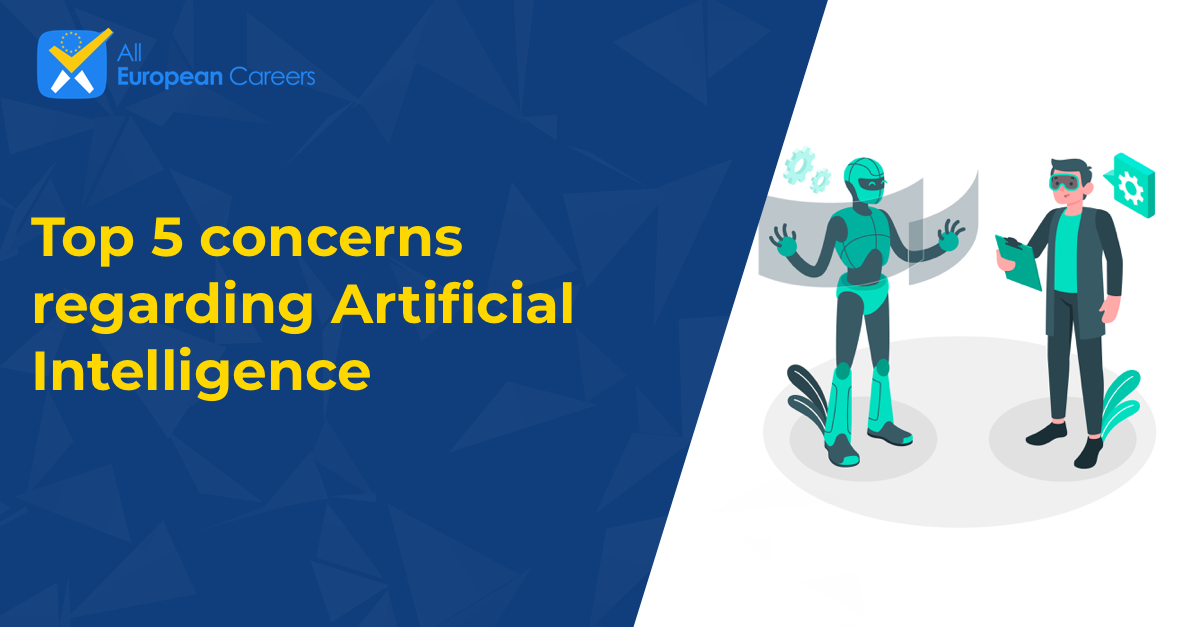The rapid advancement of artificial intelligence has brought numerous benefits, but it has also raised several concerns. Here are the top five concerns about artificial intelligence:
Job Disruption and Unemployment:
One of the most significant concerns is the potential displacement of jobs due to automation. As AI and automation technologies continue to improve, there is a fear that certain tasks and roles currently performed by humans may be taken over by machines, leading to unemployment and economic disruption. This could impact various industries, from manufacturing to customer service, and potentially exacerbate income inequality.
Bias and Fairness:
AI systems are often trained on large datasets, and if these datasets contain biases, the AI systems can perpetuate and amplify them. This could lead to unfair and discriminatory outcomes in areas like hiring decisions, loan approvals, and criminal justice. Ensuring AI systems are free from bias and promote fairness is a critical challenge that needs to be addressed.
Privacy and Security:
AI relies on vast amounts of data for training and decision-making. The collection, storage, and analysis of personal data raise concerns about privacy and data security. Misuse or unauthorized access to this data can lead to significant privacy breaches and potential harm to individuals. Safeguarding data and building robust security measures are essential in the AI era.
Lack of Explainability:
Many AI algorithms, particularly in deep learning, function as black boxes, meaning they make decisions without providing transparent explanations for those decisions. This lack of explainability raises concerns, especially in critical domains like healthcare and autonomous vehicles, where understanding the reasoning behind AI decisions is crucial for trust and accountability.
Autonomous Weapons and Ethical Concerns:
The development of AI-powered autonomous weapons is a growing concern. The prospect of weapon systems making decisions to deploy lethal force without human intervention raises significant ethical questions. There are ongoing debates about the responsible use of AI in military and security applications and the need for international regulations to prevent the misuse of AI in warfare.
Conclusion:
While artificial intelligence offers immense potential to improve our lives, these concerns highlight the importance of approaching AI development and deployment with caution and responsibility. Addressing these challenges requires collaboration among policymakers, industry leaders, researchers, and the broader public to ensure that AI technologies are developed ethically, transparently, and in ways that benefit humanity while minimizing potential risks.

More Blogs
Exploring the Best Software Technologies to Master in 2024
Efficient Strategies for Managing Software Workload During the Holiday Season
10 Tips for Java Developers to Get a Head Start in 2024
The Importance of Hiring a Native Mobile App Developer for Your Business
Why Companies Are Seeking These Multifaceted Tech Experts